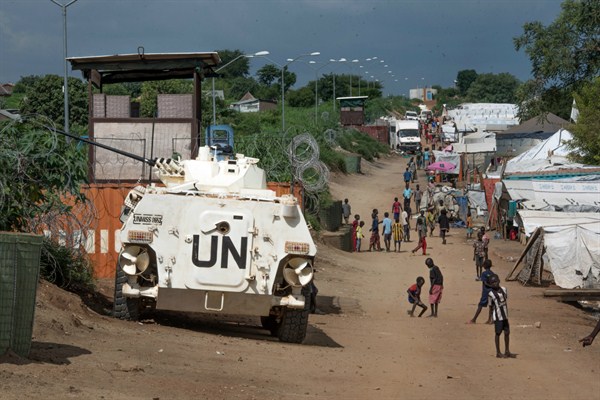In August, reports emerged that South Sudanese soldiers had violently attacked foreign aid workers during a July rampage in the capital, Juba. They took hostages and raped several women at a hotel popular with foreigners, and also killed a local journalist.
During the four-hour siege, those held captive at the Terrain Hotel repeatedly called for help to the United Nations peacekeeping force—stationed less than a mile down the road—and the U.S. embassy in Juba, but none came. Beyond the horrible violence the hostages endured, the attack reflected a litany of systemic failures to safeguard foreign aid workers who seem to have followed every single security protocol, yet were left unprotected.
Much of the coverage of the Terrain Hotel attack has focused on the sexual assaults on the aid workers. But as chilling as that is, it is critical not to lose perspective on the attack’s broader implications. As with stories around sexual violence told anywhere in the world, there is an instinct to focus on the “sexual” aspect, and not the “violence.” But sexual assault is not a sexual act; it is an act of violence. And in the context of the civil war in South Sudan, this was a case of the deliberate use of violence against aid workers who theoretically enjoy a measure of immunity.

